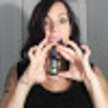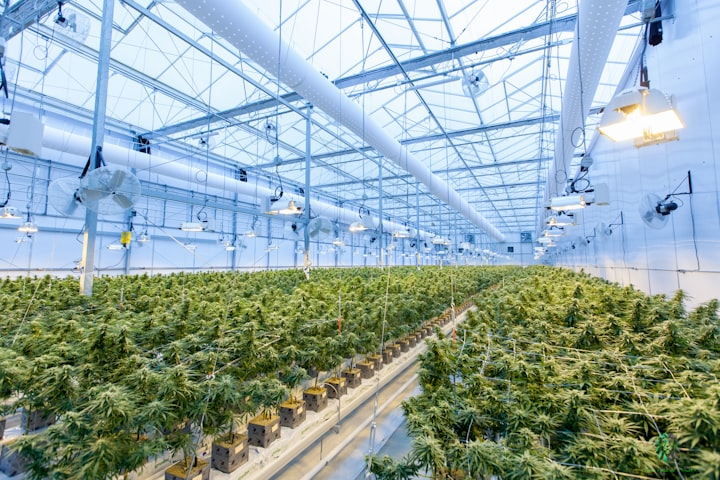Does CBD oil make its users "high?" This query has been asked plenty of times since the advent of the herbal cure.
People who have not tried CBD oil yet might have qualms or second thoughts of even taking a sample due to lack of awareness about its myriads of benefits.
Asking the question if the oil, indeed, makes people "high" is normal. It reflects people's curiosity and interest regarding how the cannabidiol-based remedy can affect their bodies.
In addition, it is a mark of carefulness, which is innate to human nature prior to heading towards uncharted territories.
I. Dictionary Definitions of the Expressions "High" and "Get High"
In order to better comprehend if CBD oil, indeed, makes people feel "high," it is ideal to initially establish the definitions of the expressions "high" and "to get high."
The reason behind this is because when these terminologies are taken out of context, they could pertain to different things.
The Longman Dictionary of Contemporary English Online provided the meaning of "high." In drug terminologies, the term refers to "a feeling of pleasure or excitement produced by some drugs."
Meanwhile, FreeDictionary.com explains the meaning of the expression "get high" as an idiom that means "to achieve a state of mental euphoria, as from substance intoxication (most often in reference to marijuana)."
With these definitions, it can be inferred that the expressions "high" and "to get high," when used in discussions about CBD oil, refers to feeling happy and excited—two positive emotions—after taking the plant-based cure.
II. Cannabidiol Oil—Does it make people "high" or not?—A Short Answer
CBD oil users and non-users have the right to learn more about alternative medicine.
The important question of the day is: "Does CBD oil get people high?" The straight answer is NO. CBD oil does not make people "high."
Now, why not? The explanation for this is because the oil was specifically produced to diminish the tetrahydrocannabinol (THC) component.
On the other hand, the cannabidiol (CBD) composition of CBD oil is the one that is maximized.
The THC is the element that makes the people "high." It has a psychoactive property that can alter the people's state of mind when ingested.
According to VeryWellMind, people tend to see the world in a different manner when they are "high" on cannabis. They exhibit the following:
- People or things they are familiar with can seem odd or unfamiliar. This situation amuses them.
- Colors can look brighter.
- Their aesthetic appreciation is enhanced.
- They seem to see the world as more beautiful, looking at it in a positive manner.
- They have a greater appreciation for music. Instead of doing other things, they may spend most of their time on music-listening moments.
- People who are "high" can have an enhanced sense of taste. They can engage in "munchies," a type of binge eating.
They would, hence, consume larger amounts of food than normal and usually in odd combinations like pickles with chocolate.
III. Scientific Explanation to the Oil's Non-Psychoactive Nature
To further understand why CBD oil does not make people "high," it is also enlightening to learn how it actually works in the body, specifically how it does not cause the "high" feeling.
The human body's activities and experiences are controlled by the central nervous system (CNS).
This group of interconnected parts of the body comprises two parts: the human brain and the spinal cord.
The neuron or the nerve cell is the fundamental unit of the CNS. Billions of nerve cells facilitate the communication of the different parts of the human body through the spinal cord and the brain.
Various systems of receptors that perform different functions are located within the CNS.
The endocannabinoid system (ECS) is among the most important and is located in the mammalian brain. It controls people's memory, appetite, mood, and feelings of pain.
The cannabinoid receptor subtype-1 (CB1 receptor) is among the different receptors within the ECS.
When the CB1 receptor gets into contact with the THC, it facilitates the psychoactive properties that relate to "getting high."
On the other hand, when the CB1 receptor gets into contact with CBD, the latter actually prevents the THC from engaging with the CB1 receptor.
The CBD cancels out the THC's mind-altering or psychoactive effects. Due to the manner of the CBD blocking the activity of the THC in the brain, it is labeled as a CB1 antagonist.
The term "antagonist" in this context pertains to substances that inhibit or prevent other substances' physiological actions.
In addition, while the CBD blocks the THC's contact with the CB1 receptor, it activates the other receptors in the mammalian brain.
One of them is serotonin, which plays a role in people's appetite, emotions, and cognitive, autonomic, and motor functions.
Another of these receptors is the vanilloid, which helps in regulating pain. Finally, the adenosine is a receptor that facilitates a natural “braking” action and can help people sleep well.
Apparently, the CBD prevents the unwelcome ramifications of the high THC content like cognitive impairment, anxiety, and psychotic symptoms (especially in people with a family history of psychosis).
CBD also fights other side effects of THC like paranoia (especially among neophyte users) and dysphoria.
As the CBD is not psychoactive, it delivers the therapeutic effects of CBD oil without adversely affecting the people's state of mind.
IV. Since cannabidiol oil doesn't make people "high," why take it?
This can be a welcome development because skeptics about the health benefits of the oil are commonplace.
Since CBD oil is advantageous for people's well-being and does not get people "high," it is best to believe that the plant-based cure can certainly help instead of harm. Among the therapeutic effects of CBD oil are:
- Helps in Getting a Good Night's Sleep
- Diminishes High Blood Sugar Levels
- Facilitates Bone Development
- Prevents Cancer Cells from Metastasizing
- Mitigates soreness and muscle spasms.
- Stimulates Good Appetite.
- Enables the Regeneration of the CNS
- Relieves Feelings of Anxiety
- Terminates the Growth of Bacteria
- Heals Skin Diseases like Psoriasis
- Decreases Inflammation
- Alleviates the Severity of Psychosis
- Reduces Vomiting, Convulsions, Seizures, and Nausea
Given these details that support the medical benefits of CBD oil, it is, indeed, high time to put to an end to the controversies and disputes pertaining to it. The government and health and medical institutions should band together to carry out intensive research and help enlighten the public about the true and helpful nature of CBD oil. After all, it is their duty to ensure people's wellness. In addition, conducting further in-depth research is for the benefit and treatment of humankind's diseases.
These longstanding health concerns would no longer bedevil the public should the authorities cooperate in shedding light about the real and auspicious effects of CBD oil.






Comments
There are no comments for this story
Be the first to respond and start the conversation.